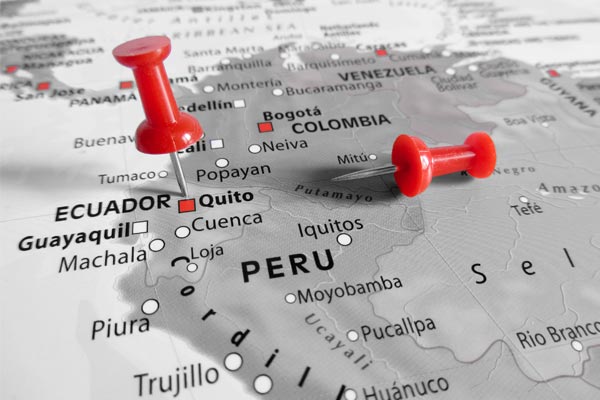Ecuador is currently facing a 60-day state of emergency, triggered by internal disturbances and armed violence. This measure highlights the critical need to address ongoing security challenges.
The government has enforced a nationwide curfew and is experiencing power and water supply issues. Travellers are advised to exercise caution and stay informed.
Ecuador Declares State of Emergency
In response to mounting internal disturbances and armed violence, Ecuador has enacted a 60-day state of emergency. This measure underscores the urgency to curb escalating threats to public safety. As part of the emergency declaration, the government has implemented a nationwide curfew spanning 10pm to 5am, impacting several districts across the country. Furthermore, the Foreign, Commonwealth & Development Office has highlighted that this state introduces stringent restrictions on freedoms, allowing military and police increased authority to manage the situation effectively.
Impact on Everyday Life
The ongoing state of emergency in Ecuador is affecting daily life significantly. Citizens are experiencing disruptions due to enforced curfews and potential power outages that could last up to 12 hours per day. Furthermore, some regions are facing water rationing. Essential services are being prioritised, but the restrictions are clearly impacting ordinary activities and the overall quality of life.
Travel Advisory
For travellers planning to visit Ecuador, the current situation poses considerable challenges. The Foreign, Commonwealth & Development Office has advised against all but essential travel to seven coastal provinces, reflecting the severity of conditions. Notably, transiting through Guayaquil airport and travelling to the Galapagos Islands via air is still possible. The advice reiterates the need for vigilance and the importance of keeping abreast of local updates.
Operational Status of Airports
Despite the state of emergency, airports in Quito and Guayaquil remain operational, providing a critical link for international travellers. Air travel has not been curtailed, and movement to and from airports during curfew hours is permitted for those with a scheduled flight. This operational stability offers a degree of reassurance for travellers and airlines, although monitoring flight schedules is essential given the dynamic situation.
The US embassy in Ecuador has further echoed the need for travellers to remain informed about changes. Their latest communications reinforce the importance of complying with local regulations and staying updated on flight statuses to avoid disruptions during transit.
Historical Context
Ecuador has seen several states of emergency over the past year, each a response to outbreaks of violence and crime. This continuous cycle highlights the prevailing challenges in maintaining national security. The initial emergency decree was issued last August, and subsequent ones were necessary as violence spiked.
This historical backdrop provides context to the current emergency measures, which aim to address not just immediate threats but also longer-term stability issues. The regularity of these states of emergency has prompted discussions about more sustainable solutions to Ecuador’s security challenges.
Local and international stakeholders are observing the developments closely, considering both the socioeconomic impacts and the effectiveness of harsh security measures. There is a growing recognition of the need for comprehensive strategies that extend beyond short-term military interventions.
Response from the International Community
The declaration of a state of emergency in Ecuador has drawn varied reactions from the international community. While some countries have issued travel warnings to their citizens, others have expressed support for Ecuador’s efforts to restore order. The global perspective is one of cautious observation, as many countries have vested interests in Ecuador’s stability due to economic ties and regional security concerns.
International organisations are also monitoring the situation, assessing both humanitarian implications and the potential for regional spillover. The concerted effort to assist Ecuador in navigating these challenges underscores the interconnected nature of global stability efforts.
Implications for Future Travel
Looking ahead, the current state of emergency serves as a reminder of the unpredictable nature of travel in regions facing instability. Travellers are encouraged to stay informed and adaptable to changing circumstances. This situation highlights the need for comprehensive travel insurance and contingency plans to mitigate potential disruptions.
The travel industry, particularly those involved in planning tours to Ecuador, is closely analysing these developments. There is an emphasis on ensuring traveller safety while remaining flexible to reschedule or reroute itineraries as necessary.
The state of emergency in Ecuador underscores the gravity of the situation, necessitating both immediate actions and long-term strategies.
As the country navigates these challenges, the international community and travellers must remain vigilant and responsive to ensure safety and stability.

